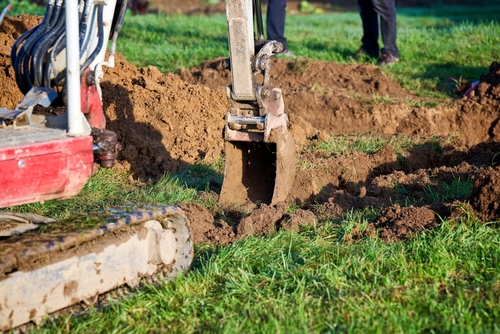
Excavation is a crucial part of many construction projects and can vary greatly depending on the type of project and the site conditions. There are several different types of excavation techniques that are commonly used in construction, each with their own specific purpose and benefits. It is important to understand the different types of excavation techniques and when to use them in order to ensure that the project is completed safely and efficiently. In this blog, we will discuss some of the most commonly used excavation techniques and when they are best suited for use.
1. Trenching
Trenching is perhaps the most common type of excavation technique and is typically used for laying pipes, cables, or utilities underground. Trenches are narrow excavations that are deeper than they are wide, and are often used in urban areas where space is limited. Trenching is typically used when the excavation depth is shallow and the width of the trench is relatively small. Trenching can be done using manual labor or with the help of machinery such as excavators or trenchers. It is important to properly shore up trenches to prevent collapses and cave-ins, as they can be quite dangerous if not properly supported.
2. Strip Excavation
Strip excavation is a technique that involves removing layers of soil or rock in horizontal strips to expose the underlying material. This technique is commonly used in large-scale earthmoving projects, such as the construction of highways or mining operations. Strip excavation is typically used when the excavation depth is shallow and a large area needs to be excavated. It is often done using heavy machinery such as bulldozers or scrapers, which can efficiently remove large amounts of material in a relatively short amount of time. Strip excavation is ideal for projects where large volumes of material need to be moved quickly and efficiently.
3. Slope Excavation
Slope excavation is a technique that involves excavating a sloping surface to create a stable slope that is safe for construction. This technique is commonly used in projects where the natural terrain is sloped, such as building roads on hilly terrain or creating building pads on sloping sites. Slope excavation requires careful planning and execution to ensure that the slope is stable and will not collapse during construction. Slope excavation can be done using manual labor, machinery, or a combination of both, depending on the size and complexity of the project. Proper drainage and erosion control measures must be implemented to prevent soil erosion and landslides on the newly excavated slope.
4. Rock Excavation
Rock excavation is a technique that involves removing solid rock from the ground to create a foundation or clear a site for construction. This technique is commonly used in projects where the underlying soil is rocky or where rock formations need to be removed to create a level surface for construction. Rock excavation is typically done using machinery such as jackhammers, rock drills, or explosives, depending on the size and hardness of the rock. Proper safety precautions must be taken when conducting rock excavation, as the process can be hazardous and potentially dangerous if not done correctly.
5. Dredging
Dredging is a type of excavation technique that involves removing sediment or debris from a body of water to deepen the channel, improve water flow, or clear a waterway for navigation. Dredging is commonly used in projects such as river dredging, port construction, or coastal restoration. Dredging can be done using specialized dredging equipment such as dredgers, excavators, or clamshell buckets, depending on the type of material being removed and the depth of the water. Dredging is critical for maintaining waterways and ensuring that they are navigable and free of obstructions.
Summary
There are several different types of excavation techniques that can be used in construction projects, each with its own specific purpose and benefits. It is important to understand when and how to use each type of excavation technique in order to ensure that the project is completed safely and efficiently. By choosing the right excavation techniques for the job, construction projects can be completed on time and within budget, while minimizing risks and hazards to workers and the environment.
Need Concrete Contractors in Sanford, NC?
We are the area’s best concrete company. We specialize in concrete finishing of all types of concrete for residential and commercial customers. Our services include pavement, driveways, footings, sidewalks, decorative concrete, hauling, demolition, and property grading. We’re fully insured. Contact us today for quality workmanship and service.

